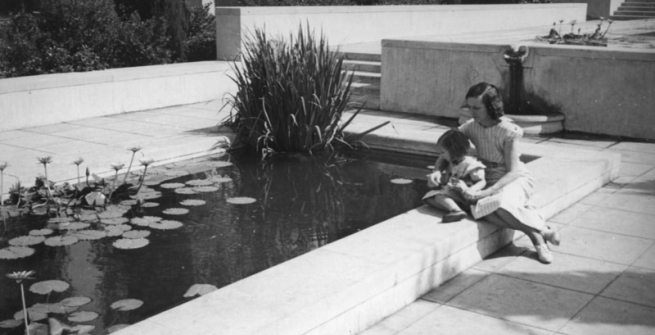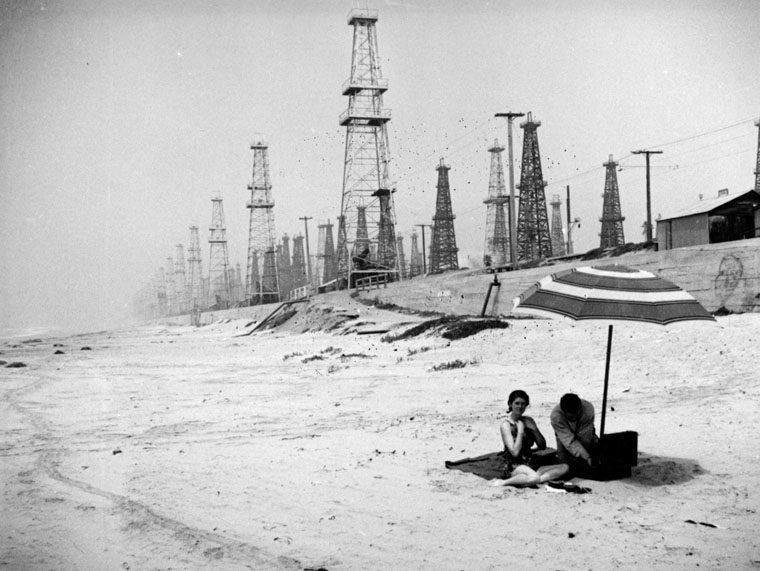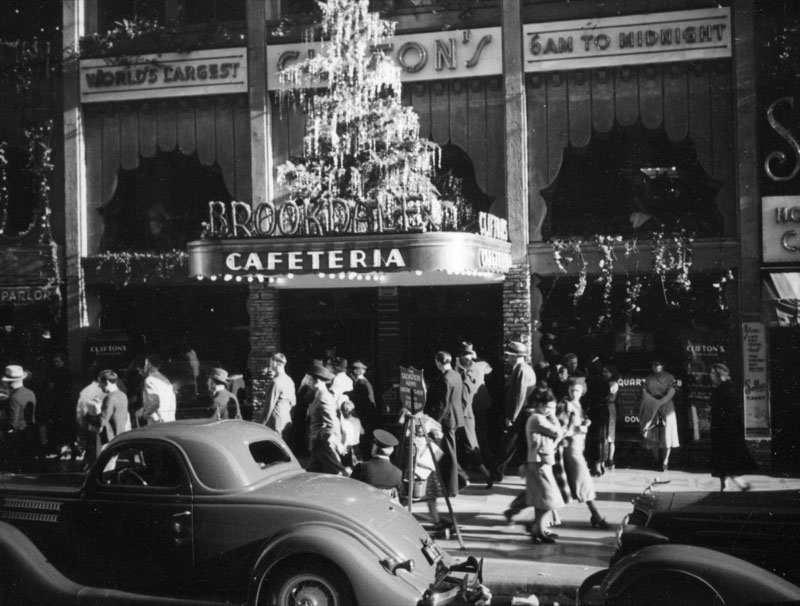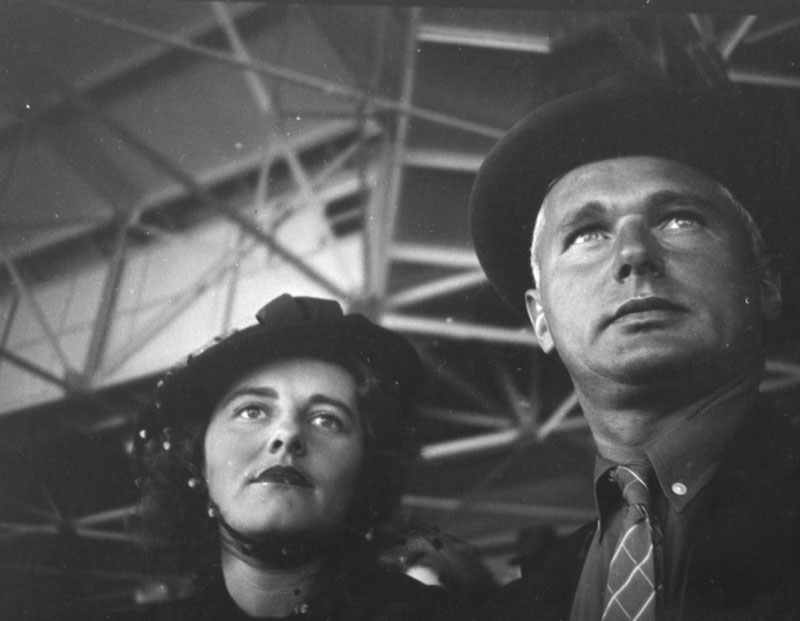Los Angeles in the late 1930s was a city in transition. It was suffering through the Great Depression with the rest of the country, but forging ahead with progress. Old Chinatown and La Grande Station were being erased, but Union Station and a New Chinatown would soon emerge. Downtown was beginning to show its age, but was still a shopping and entertainment center, though Hollywood had also become a magnet for consumers. The city was in the throws of political discourse and many members of its population found themselves standing in breadlines, but others still managed to enjoy amusements such as hiking in the hills above the city, or picnicking on beaches that sat in the shadows of oil derricks. For better or worse, it was a great time to be photographing the city, and Herman Schultheis did just that.
Schultheis, a German immigrant who arrived in New York in his mid-twenties, was kind of a Renaissance man. Besides a Ph.D. in electrical engineering, he was an accomplished pianist, an amateur archeologist, and an avid photographer who seemed to always carry a camera with him. He moved to Los Angeles in 1937 with his bride, Ethel, and the couple attacked their new city with a vengeance, experiencing all that it had to offer, be it the bustling streets of Downtown, the rural vistas of the San Fernando Valley, the Main Streets of neighboring towns, or the cool breezes of the coastlines. Wherever he went, Schultheis’ camera was poised and ready, and he seemed determined to capture it all with his lens.
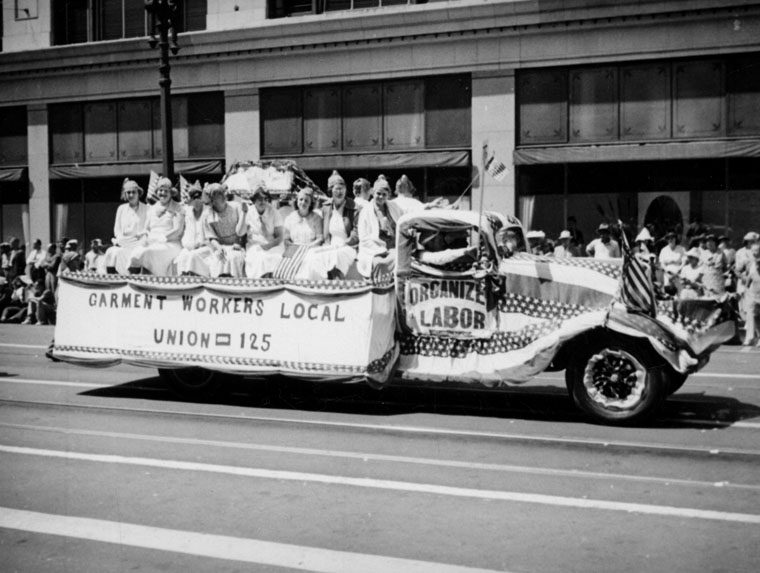
Parade float entered by Garment Workers Local Union 125 rides past the Broadway department store at 401 South Broadway, circa 1937
Following his relocation to Southern California, Schultheis was briefly employed as an effects engineer at the Disney Studios, followed by a stint at 20th Century-Fox. He eventually ended up at Librascope, an aerospace company, which is where he was employed when he disappeared in the jungles of Guatemala while on an archeological expedition in 1955. His remains were found a year later.
Ethel Schultheis never remarried, nor spoke publicly of her husband following his tragic death. When she passed away in 1990, her Los Feliz home and all its contents were willed to Catholic Charities. Among the possessions was an amazingly detailed notebook documenting the special effects from Disney productions, including Fantasia and Bambi, along with a treasure trove of Schultheis’ photos, which were donated to the Los Angeles Public Library in 1991.
Now, nearly 5,000 of Herman Schultheis’ photos are available through the LAPL website, and a selection of the images can be viewed in the exhibit “How We Worked, How We Played: Herman Schultheis and Los Angeles in the 1930s,” on display in the History & Genealogy Department at Central Library through March 2013.
